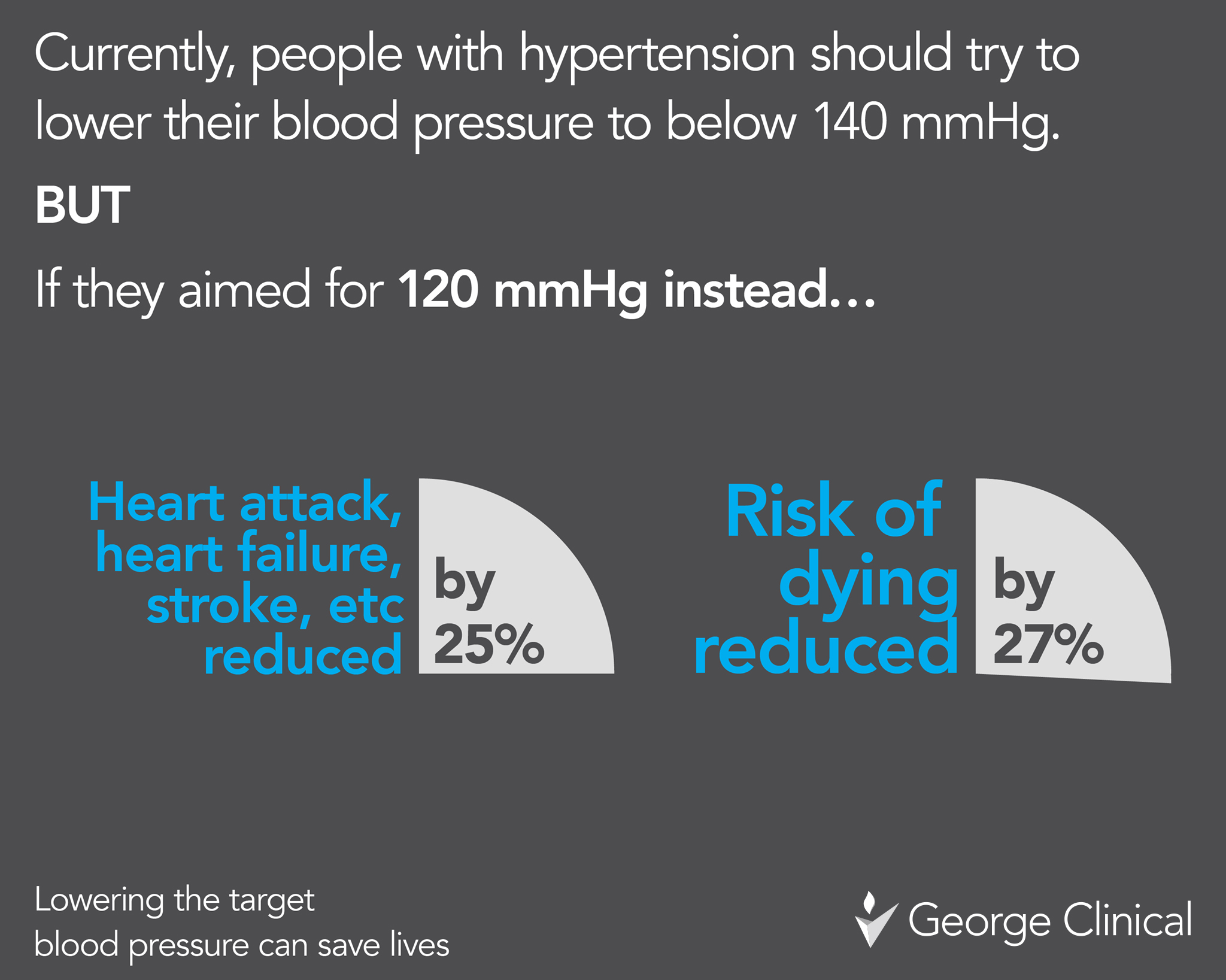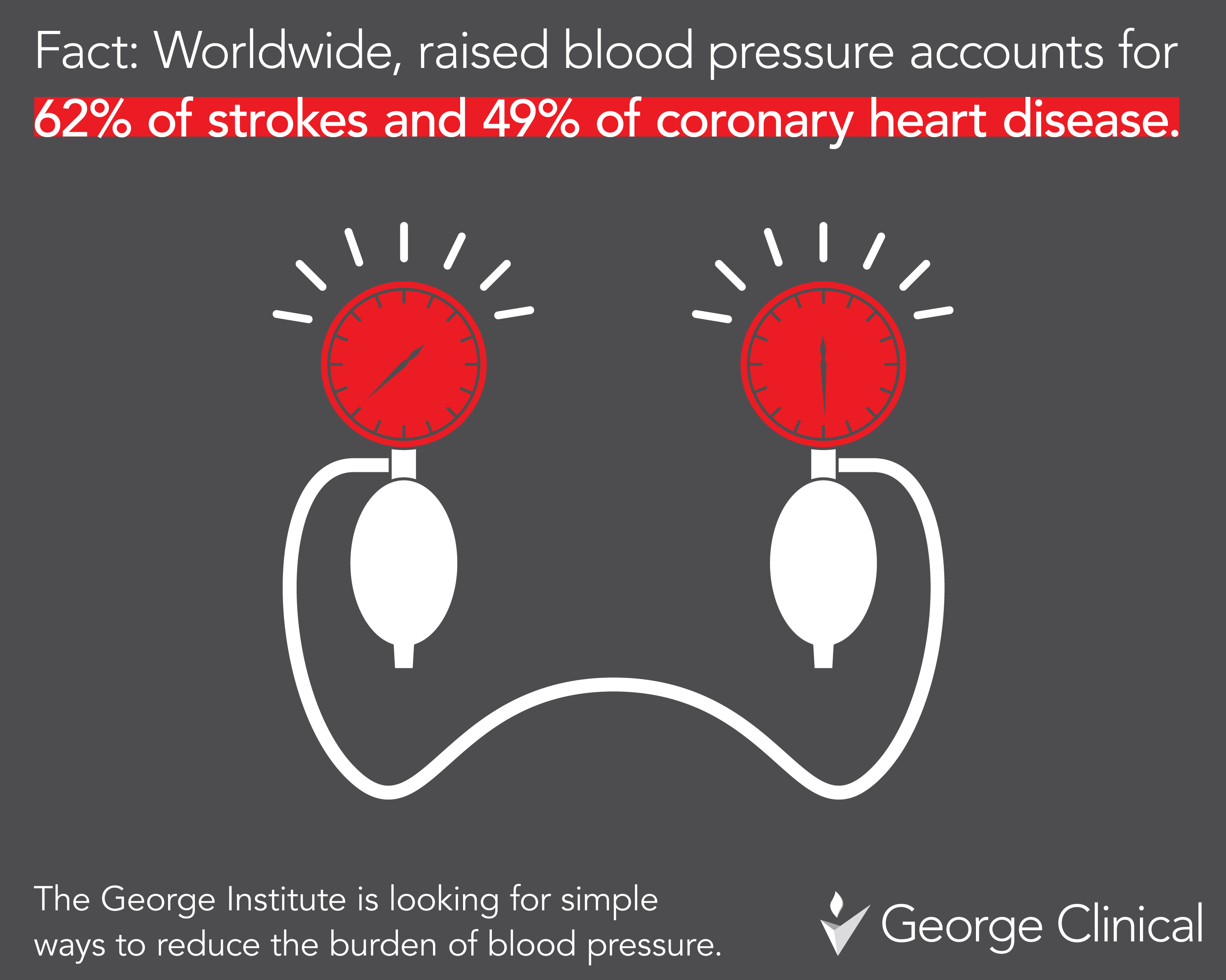
High blood pressure, or hypertension, can be defined as the flow of blood through the arteries being pushed against the inside of the artery walls. The more pressure the blood exerts on the artery walls, the higher the blood pressure. Hypertension has been labelled the silent killer – as it rarely has symptoms. As such, a large number of people may be suffering from hypertension and not realize it. By incorporating these tips into your daily life, the risk of suffering from hypertension can be reduced.
- Exercise on a regular basis
Exercising at least 30 minutes on a daily basis lowers your blood pressure by 4-9 mmHg and assists in losing weight. Weight loss is one of the most effective ways to control your blood pressure. Regular physical activity such as: walking, jogging, cycling, swimming or strength training is beneficial for lowering blood pressure. Even a moderate amount of weight loss of 4-5 kg, is effective in reducing the risk of hypertension.

- Eat healthy
A diet filled with foods such as: whole grains, vegetables, fruits and low fat dairy products is key to maintaining a healthy diet. Reducing the amount of saturated fat and cholesterol your body consumes can reduce your blood pressure by 14 mmHg. By monitoring your food intake, it can be surprising to realize how much unnecessary food is consumed that may contribute to raising blood pressure.
- Quit smoking
Smoking is highly addictive. The effects of the drug nicotine in the cigarette raises blood pressure and heart rate. Additionally, nicotine narrows and hardens your artery walls, which leads to blood clots. The stress smoking puts on your heart can set you up for a stroke or a heart attack. The temporary rise in blood pressure may be most conspicuous within the first cigarette of the day, even for inveterate smokers. In a study of normotensive smokers, an average rise was detected in systolic blood pressure of 20 mmHg after the first cigarette. As a result, giving up smoking helps your blood regulate at a normal rate and progressively return to normal.
- Medication
If your physician has prescribed you medication to regulate your blood pressure, it is important to follow their instructions on how and when you must take it. If an individual was to stop taking their blood pressure medication, their blood pressure could rise to dangerous levels – potentially damaging other organs. If you have any concerns regarding the medication you are taking, consult your GP or cardiologist.
- Decrease alcohol consumption
The excessive consumption of alcohol can increase your blood pressure to dangerous levels. By limiting the amount of alcohol consumed, your blood pressure can be lowered by 2-4 mmHg. It is important to note that alcohol contains calories and can contribute to unwanted weight gain, another risk factor for hypertension. Additionally, alcohol can hinder the effects of blood pressure medications.

- Reduce your stress
Chronic stress contributes to increasing your risk of hypertension. Some individuals handle their stress by eating: unhealthy foods, drinking alcohol or smoking, which increases the risk of hypertension. However, there are healthy ways to cope with stress. Make time to relax and participate in activities you enjoy. Also, for example, take 15 to 20 minutes a day to clear your mind of anything that triggers your stress.
- Reduce the amount of sodium consumed
If there is a substantial amount of sodium in your diet, it is recommended you reduce the amount consumed. As a result, you may avoid bursting your arteries or suffering a heart attack. Decreasing your sodium intake by a small amount can lead to a reduction in your blood pressure from 2-8 mmHg. It is preferable to limit your sodium intake to 2300 mg a day or less. However, a lower sodium intake of 1500 mg a day is required in individuals who are more sensitive to salt.
- Cut back on caffeine
The effects of caffeine can raise an individual’s blood pressure by 10 mmHg, in those who are rarely exposed to caffeinated beverages. Individuals who have consumed a large amount of caffeine throughout their life are not generally affected by the effects of caffeine. If you are concerned that caffeine raises your blood pressure, monitor your blood pressure within 30 minutes of drinking a caffeinated beverage. If your blood pressure increases by 5-10 mmHg, you may be sensitive to the effects of caffeine.
The effects of hypertension can damage your body discretely over a number of years. Untreated hypertension can damage organs over time and lead to: a poor quality of life, stroke, heart disease or cause you to have a heart attack. Hypertension can be treated and prevented at an early stage. The tips provided in this article can assist you in ways to modify your lifestyle and reduce your risk of life threatening complications. If you suspect that you have high blood pressure, or a number of risk factors, including a family history of hypertension, it is best to seek the advice of your physician.
About George Clinical
George Clinical is a leading clinical research organisation in Asia with over 260 staff operating in 15 countires. George Clinical provides a full range of trial management services to pharmaceutical and biotech customers, for both registration and post marketing trials. Our partner in research, The George Institute, is a leader in chronic disease research with a global network of experts. George Clinical combines this scientific and clinical leadership from the Institute with world class trial delivery capability to create a distinctive service. Our internationally recognized scientific leadership allows George Clinical to provide excellence from design to delivery.



